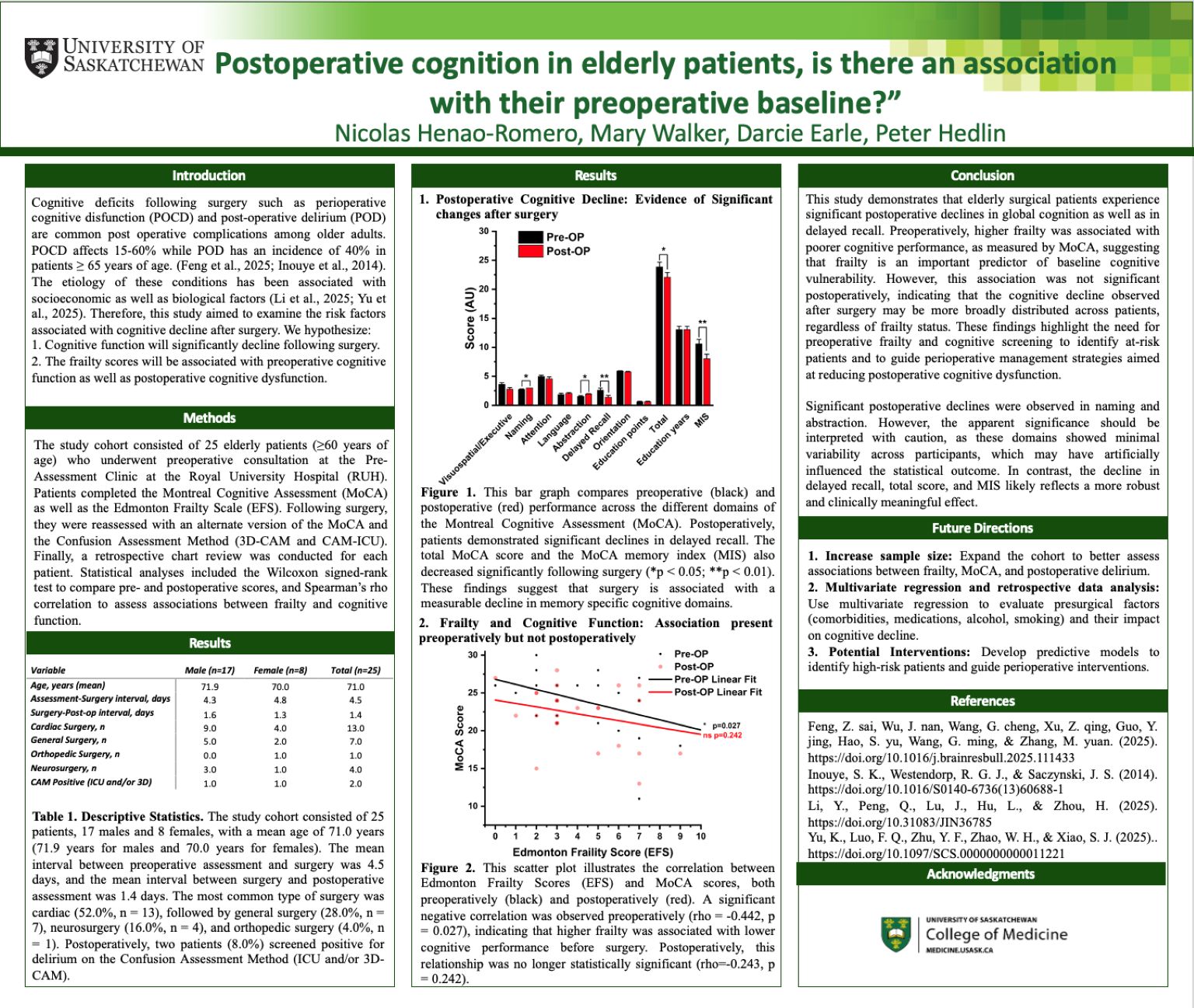
Postoperative cognition in elderly patients, is there an association with their preoperative baseline?
Nicolas Henao
Background: Cognitive deficits following surgery such as perioperative cognitive disfunction (POCD) and post-operative delirium (POD) are common post operative complications among older adults. The etiology of these conditions has been associated with socioeconomic as well as biological factors. Therefore, this study aimed to examine the risk factors associated with cognitive decline after surgery.
Methods: The study cohort consisted of 25 elderly patients (≥60 years of age) who underwent preoperative consultation at the Pre-Assessment Clinic at the Royal University Hospital (RUH). Patients completed the Montreal Cognitive Assessment (MoCA) as well as the Edmonton Frailty Scale (EFS). Following surgery, they were reassessed with an alternate version of the MoCA and the Confusion Assessment Method (3D-CAM and CAM-ICU). Finally, a retrospective chart review was conducted for each patient.
Discussion: This study demonstrates that elderly surgical patients experience significant postoperative declines in global cognition as well as in delayed recall. Preoperatively, higher frailty was associated with poorer cognitive performance, as measured by MoCA, suggesting that frailty is an important predictor of baseline cognitive vulnerability. These findings highlight the need for preoperative frailty and cognitive screening to identify at-risk patients and to guide perioperative management strategies aimed at reducing postoperative cognitive dysfunction.
